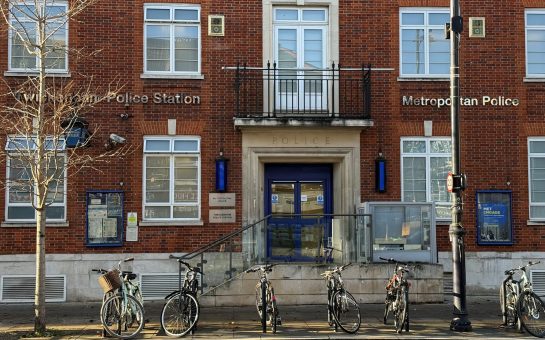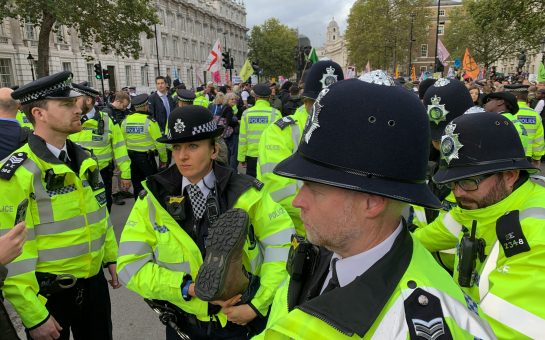The Women’s Equality Party have condemned ‘disgusting behaviour’ from the Met Police as evidence shows a constant stream of sexual misconduct allegations against officers.
There were 57 allegations from the public, and police officers or managers, of sexual misconduct by Met Police officers in the first five months of 2021.
Data supplied by the Met Police also shows a consistent number of allegations, both publicly and internally, of sexual offences from January 2016 until December 2020.
Tabitha Morton, deputy leader for the WEP, spoke on sexual violence against women and girls in the police force.
Morton said: “You start to see a picture building up of a culture that excuses this at the very best, and encourages it at the worst.
“It’s a dangerous combination of the amount of power that the police have, with this hugely misogynistic culture, because women are just not going to be safe.”
Figure 1 shows the number of allegations of sexual offences against Met Police officers, over a five year period from 2016 until 2020.

Figure 2 shows the number of men in comparison to women who have been accused of sexual offences by other officers in the same five year period.

Men account for the majority of the accused and Morton addressed concerns female officers may have when calling out misogyny.
Morton said: “We’ve seen so much evidence in the last week of women not wanting to call out the misogyny around them, because of what would happen if you then needed to call for help from your colleagues.
“There is literal fear that they would be abandoned. That’s horrifying.”
Men also accounted for the vast majority of officers accused by the public, as seen in Figure 3.

Of the internal allegations made against officers over that five year period, results deemed 30% of cases had no case to answer, and nearly 19% were unsubstantiated.
Furthermore, 6.35% of cases received discontinuance, meaning no action should be taken.
These percentages increase where public allegations are concerned with nearly 50% marked as no case to answer.
A further 20% of allegations were not upheld, nearly 5% were withdrawn by the complainant for reasons unknown, whilst nearly 4% considered the service provided was acceptable.
Morton said that as soon as an allegation of sexual or gross misconduct is made against an officer they need to be suspended, since Westminster and the police are the only two places this does not yet apply.
Accused officers were only suspended or restricted in 24 of the 272 allegations made by the public.
Morton added: “If allegations of sexual violence or domestic violence are upheld they should not be able to work as a police officer again.
“It’s as clear as that. A warning, a wrap on the knuckle, it’s just not good enough.”
With a number of cases of sexual misconduct in the Met resulting in a written warning, the repercussions of this for the officer vary, depending on if they offend again.
A Met Press Office spokesperson said a written warning remains live for 12 months from the date the warning is given.
This means any misconduct in the next 12 months is likely to lead to a final written warning.
It added officers receiving a final written warning are informed any future misconduct may result in dismissal.
The spokesperson added: “Allegations of wrongdoing are treated extremely seriously and investigated.”
Featured image credit: patrickdevries2003, licensed under CC BY-NC-SA 2.0




